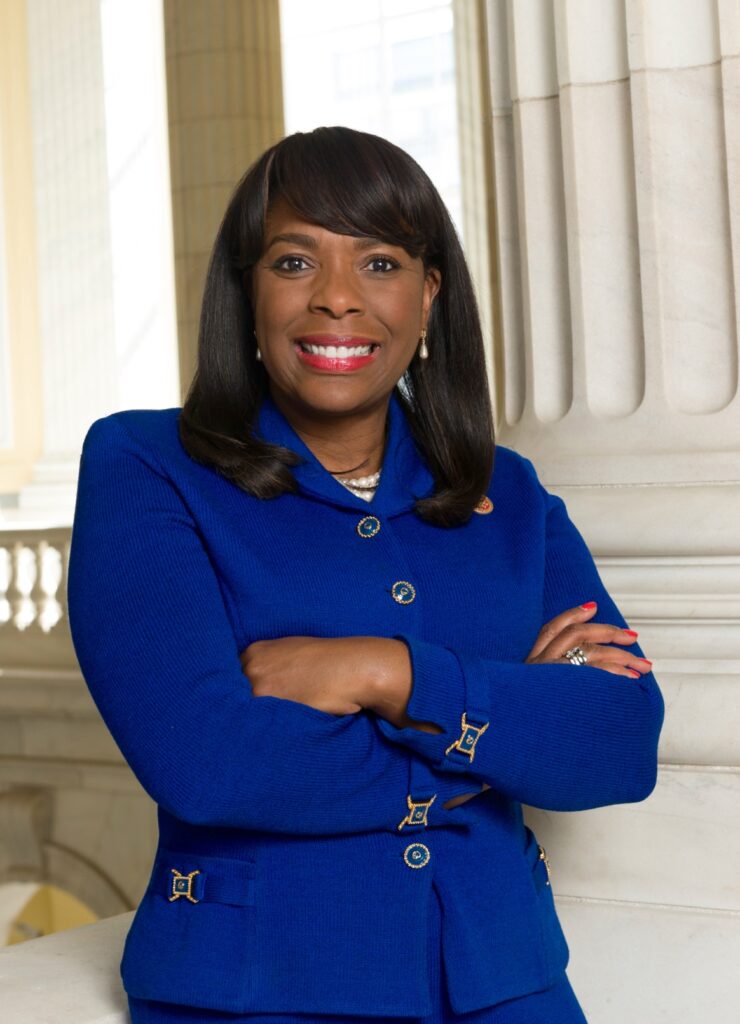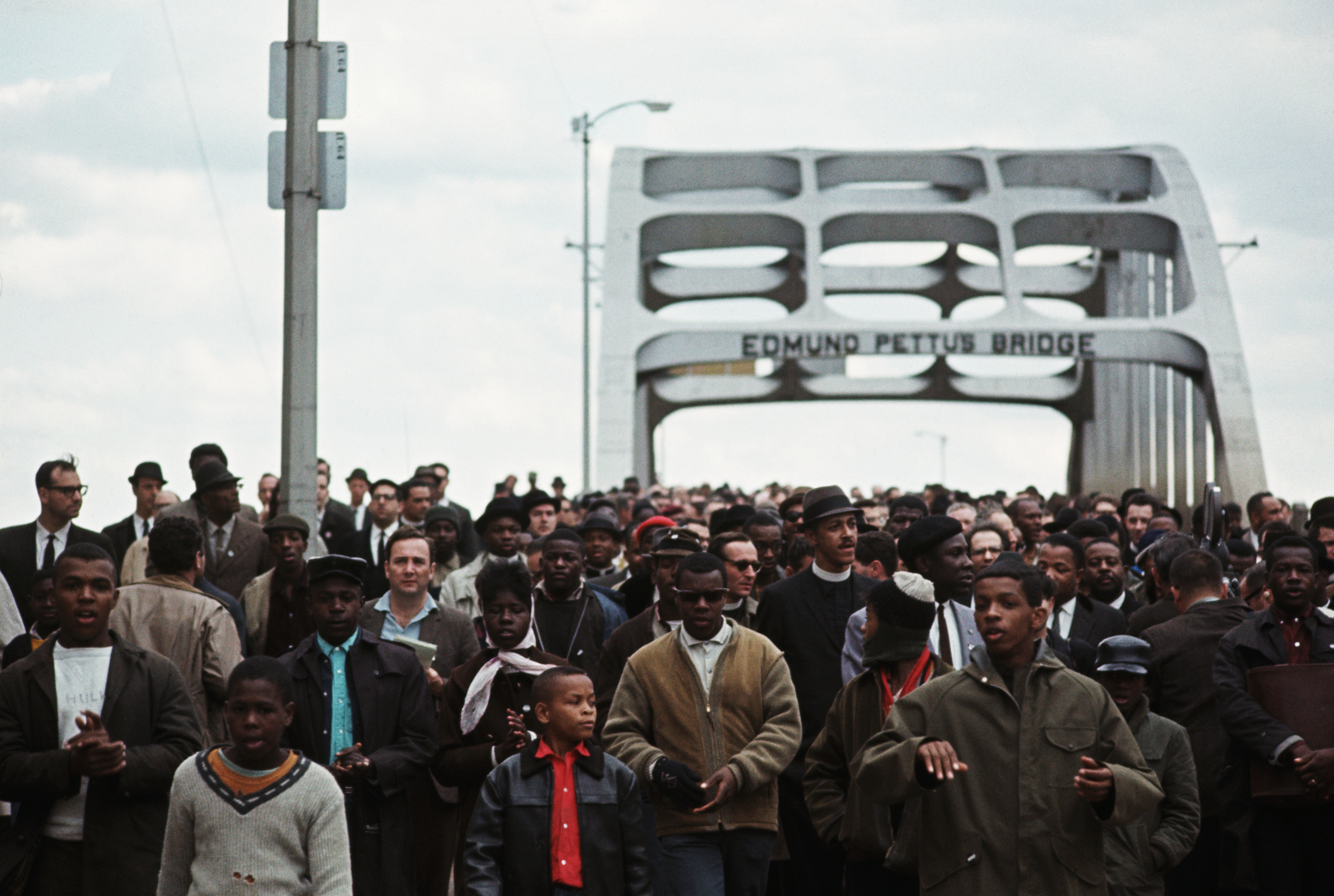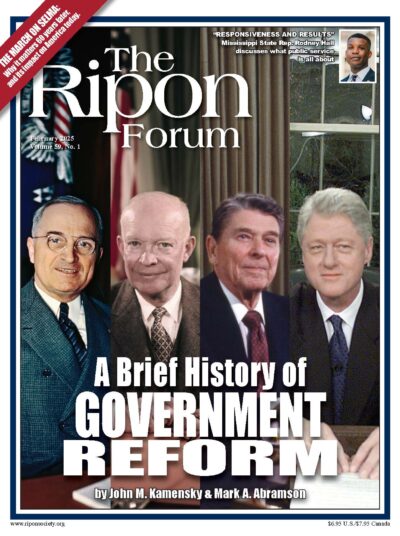
Precious. Almost sacred.
That’s how John Lewis described the right to vote. He called it the most powerful nonviolent tool in a democratic society, and he was willing to give everything to defend it.
Sixty years ago, in my hometown of Selma, Alabama, John led thousands of marchers across the Edmund Pettus Bridge. They were ordinary Americans, united by the belief that everyone, regardless of their race, should be afforded the equal right to vote.
Yet, on March 7, 1965 — what would become known as Bloody Sunday — their peaceful demonstration was met with unspeakable violence at the hands of police. The marchers were beaten, gassed, whipped, and some were even killed. Among those hospitalized was John, who sustained a fractured skull after being beaten within an inch of his life.
The marchers’ sacrifices were immense, but they were not in vain. The brutality of Bloody Sunday put a spotlight on the injustices suffered by African Americans in the Jim Crow South and ignited a movement that changed the very fabric of our nation.
The marchers’ sacrifices were immense, but they were not in vain. The brutality of Bloody Sunday put a spotlight on the injustices suffered by African Americans in the Jim Crow South and ignited a movement that changed the very fabric of our nation.

Within five months, Congress passed and President Johnson signed the landmark Voting Rights Act of 1965 (VRA), guaranteeing Americans of every background the right to make their voices heard at the ballot box, free from discriminatory barriers and restrictions.
Until 2013.
In its Shelby County v. Holder ruling, the Supreme Court took an axe to the heart of the VRA, unleashing a tidal wave of restrictive voting laws disproportionately targeting Black and minority voters.
We have all seen the consequences: long lines, closed polling stations, voter roll purges, bans on early and absentee voting. The list goes on.
It’s clear. The fight for voting rights is just as urgent today as it was six decades ago. Now more than ever, we need to restore federal oversight.
In the House, I’m leading the John R. Lewis Voting Rights Advancement Act. Named for the late civil rights leader himself, the bill would put the teeth back into the VRA by requiring states with a recent history of voter discrimination to pre-clear election changes with the Department of Justice.
The tragic reality is that while the vast majority of Democrats in Congress have signed onto this legislation, no Republicans have joined us. While Congress reauthorized the VRA with bipartisan support for decades, this new era of gridlock has driven a wedge between the parties on voting rights.
Never did I think that 60 years after Bloody Sunday, the cause of those Foot Soldiers would become our cause, too. But as John so eloquently taught us, “Freedom is not a state; it is an act… and each generation must do its part.”
Soon, we in Selma will welcome elected officials, activists, and community leaders from across the nation to commemorate the 60th anniversary of Bloody Sunday. We will once again retrace the footsteps of the marchers and pay tribute to their bravery and heroism.
But the truth is that our commemoration will be incomplete so long as the VRA remains in peril.
If we are to truly honor John’s legacy—and the legacy of all those who marched, bled, and died on that bridge—we should work to restore the law they fought so hard to enact.
That’s why, exactly 60 years after the events of Bloody Sunday, I will be reintroducing the John R. Lewis Voting Rights Advancement Act in the 119th Congress.
If we believe — as John did — that the vote is sacred, then we should come together, as Democrats and Republicans, to pass it without delay.
In the words of Dr. King, “The time is always right to do what is right.”
Terri A. Sewell represents the 7th District of Alabama in the U.S. House of Representatives.




